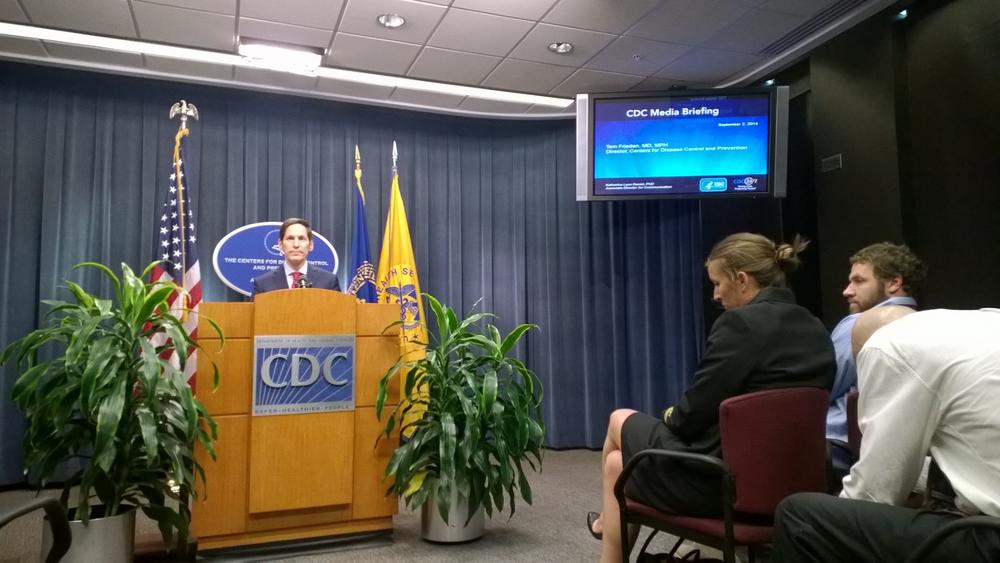
Section Branding
Header Content
CDC Head: Ebola Outbreak An 'Epidemic'
Primary Content

The Ebola outbreak in West Africa has become the first epidemic of the disease the world has seen in the virus’s 40-year history. That’s according to the head of the Atlanta-based Centers for Disease Control and Prevention, who gave a briefing Tuesday.
CDC director Tom Frieden said governments and private sector organizations aren’t responding fast enough to quell West Africa’s Ebola outbreak. He said the disease is spreading so quickly that healthcare workers and government officials can’t keep up with the number of newly infected patients or the burials. And that’s hampering attempts to contain the outbreak, despite deep expertise on what needs to be done.
“We know how to stop Ebola,” he told reporters. “The challenge is to scale it up to the massive levels we need to stop this outbreak.”
And the African nations ravaged by the outbreak and the world watching it from afar cannot depend on a silver bullet.
“In terms of the medicines, the supply of the first experimental medicine, Zmapp, has been completely exhausted and my understanding of it is, making more of it is very difficult,” he said.
The CDC has already deployed 70 workers to the region. Frieden says some CDC will be extending their stays so they can be more effective.
The news means Ebola remains front and center for Atlanta’s infectious disease experts, even after the departure last month of the first two patients infected with the virus to seek care in the U.S. These patients, two missionaries, spent three weeks in an isolation unit at Emory University Hospital that was developed more than a decade ago in conjunction with the CDC.
The patients’ stay in Atlanta reinforced how critical basic medical care is in fighting the outbreak.
Dr. Bruce Ribner, head of Emory’s infectious disease department, said hospitals in West Africa “have shortages of gowns, of gloves, of all of the equipment that we routinely use to care for patients that require isolation because of a viral illness.”
In an interview late last month, he said these hospitals also lack basic equipment to measure items such as a patient’s blood and fluid levels. And Ribner says, because of that, “they’re almost flying blind.”
Frieden with the CDC says the window to stop the outbreak is still open. But he said time is of the essence.
“The challenge is the pace,” he said. “The Doctors Without Borders director in one of the countries told me, ‘Everything we do is too little, too late’.”
According to the World Health Organization, the number of people who have been infected with Ebola has topped 3,000, and more than 1,500 people have died from it.
Tags: Ebola, ebola outbreak, CDC, Tom Frieden
